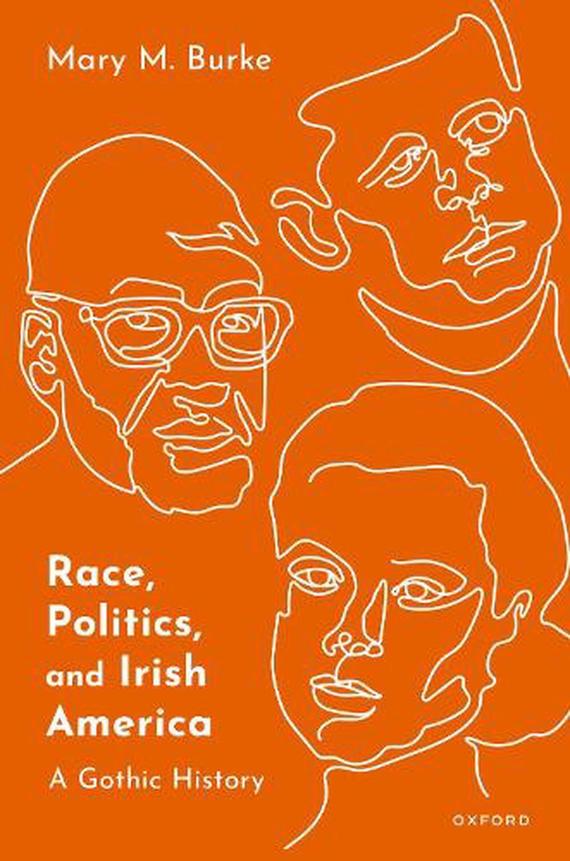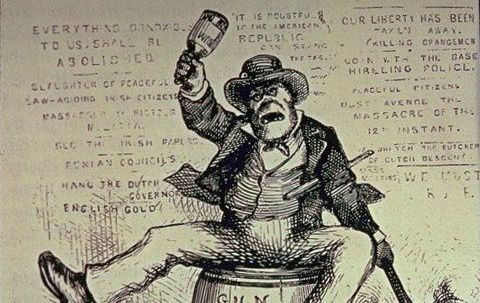In her luminous new study "Race, Politics, and Irish America – A Gothic History," author Mary M. Burke writes a cultural history of race and Irishness in the Americas.
“In the book, I've tried to tell the story of Ireland in a way that also explained the story of race in America,” she tells IrishCentral.
“The Irish are there, right from the beginning of European presence in America and they're racialized every time, with each Irish cohort that arrives in the 17th century, 18th century, 19th century. They're racialized, but they are always white. And they often have complicated relations with people of color and with the idea of whiteness itself.”
Striving towards whiteness, the social privileges, and the access that it confers is a conscious pursuit, however sometimes they're also sharply critical of it too. Burke says.

Love Irish history? Share your favorite stories with other history buffs in the IrishCentral History Facebook group.
“And that, in a nutshell, is very much the sort of awful division that continues to structure America in many ways. The Irish are there at the coalface of that for good or for ill.”
Irish history in America has been far more complex than many have been willing to concede or acknowledge, the book reminds us. Anxieties over our origins, our dubious welcome, our precarious status, and much more remain unresolved to this day, and that legacy still divides us. But does it prevents us from seeing points of contact and common cause with other communities that we might otherwise perceive?
“I was going to say that the Irish brought their own unfinished history with them, their baggage, their disordered colonial motherland. They brought settler colonial violence, they brought trauma too. And so that that old, unfinished history happens here again."
"And I guess that's why my subtitle is Gothic because the history is never finished, the past is always rearing its head, if the dead come up from their graves it's never put to bed that history, that baggage is brought to America. And it repeats, you know, the violence repeats, the settler colonialism repeats. It was never resolved in Ireland. And it hasn't resolved in America either.”

Race, Politics, and Irish America – A Gothic History by Mary M. Burke.
“I ended up comparing Elizabeth Bowen's big house novels with Eudora Welty's work and other Southern Gothic stories. “It's that notion of the Irish big house and the Southern plantation. Nicholas Canny famously said that early modern Ireland was the practicing ground for America, the testing ground for British policy in America. Writers here who've never read Nicholas Canny unconsciously sort of already know this in the south, and over in Ireland.”

Looking for Irish book recommendations or to meet with others who share your love for Irish literature? Join IrishCentral’s Book Club on Facebook and enjoy our book-loving community.
How does a book this insightful and groundbreaking get its start, I wondered? “Right out of school, after my Leaving Certificate, I went backpacking with a friend in France. We wanted to practice our school French but all the French people kept asking us about was Northern Ireland. And we didn't have the vocabulary for that (Burke grew up in Galway, far from the Troubles).
“And that's when I began to think about it. By the time I got back from living abroad to do my post-graduate studies, I very consciously went to Belfast because I thought I have to, I have to figure this out.”
“So that was the start of it, and then moving to America and beginning to meet undergrads who were black, but who told me about their Irish history in a very hesitant way, began other conversations.”
“Sometimes I think this book is an accumulation of a lifetime, in many ways. It's an accumulation of living on both sides of the border, living on both sides of the Atlantic. And meeting very diverse students in America, racially diverse students who are themselves grappling with their Irish ancestry, and sometimes not. So I think all of those things kind of accumulated.”
Race, Politics, and Irish America – A Gothic History by Mary M. Burke. Oxford, $35.00.




Comments